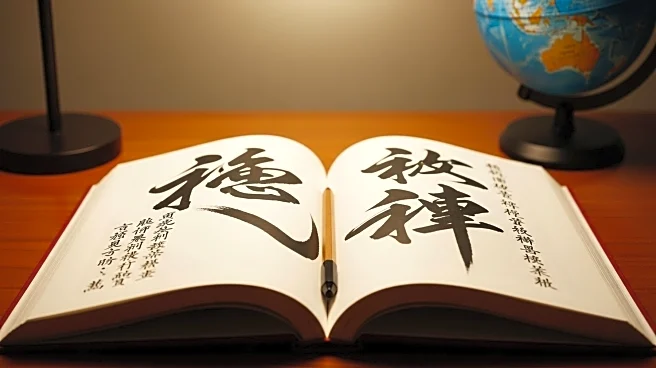What's Happening?
President Trump has defended his decision to issue 600,000 visas to Chinese students, despite facing criticism from some of his supporters. The move marks a reversal from the administration's previous stance, which included plans to aggressively revoke visas for Chinese students, particularly those with ties to the Chinese Communist Party or studying in critical fields. This decision comes as trade talks between the U.S. and China continue, following a period of strained relations due to a trade war initiated by tariffs imposed by Trump. The president argues that Chinese students contribute financially to the U.S. economy and that banning them would harm diplomatic relations with China. Trump emphasized the importance of maintaining good relations with nuclear-powered countries, stating that it is beneficial to get along with other nations.
Why It's Important?
The decision to issue visas to Chinese students has significant implications for U.S. educational institutions and the broader economy. Smaller universities, in particular, may benefit from the influx of international students, who often pay higher tuition fees. This move could also help stabilize U.S.-China relations, which have been tense due to ongoing trade disputes. However, the backlash from Trump's supporters highlights concerns about national security and the potential for espionage. Critics argue that allowing a large number of Chinese students into the country could pose risks, given the geopolitical tensions between the two nations. The decision reflects a balancing act between economic interests and security concerns.
What's Next?
The issuance of these visas is expected to occur over the next two years, aligning with previous years' numbers. As the visas are processed, there may be further debate and scrutiny from political leaders and commentators regarding the implications for national security and educational opportunities for American students. The administration may face pressure to implement additional measures to ensure that the students admitted do not pose security risks. Additionally, the ongoing trade talks with China could influence future decisions related to visa policies and international student admissions.








